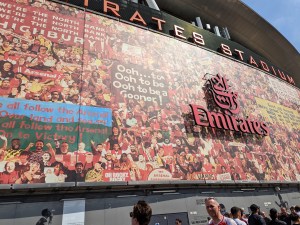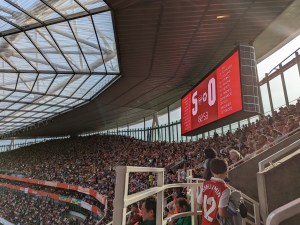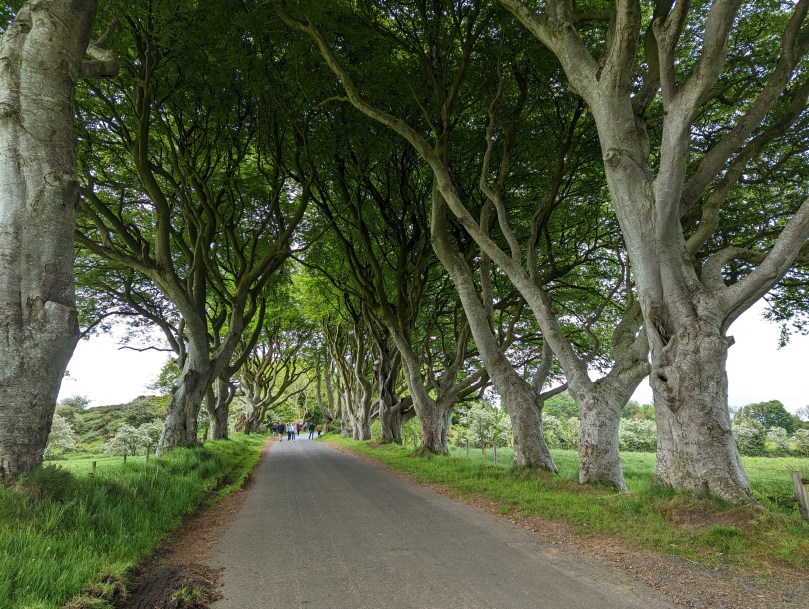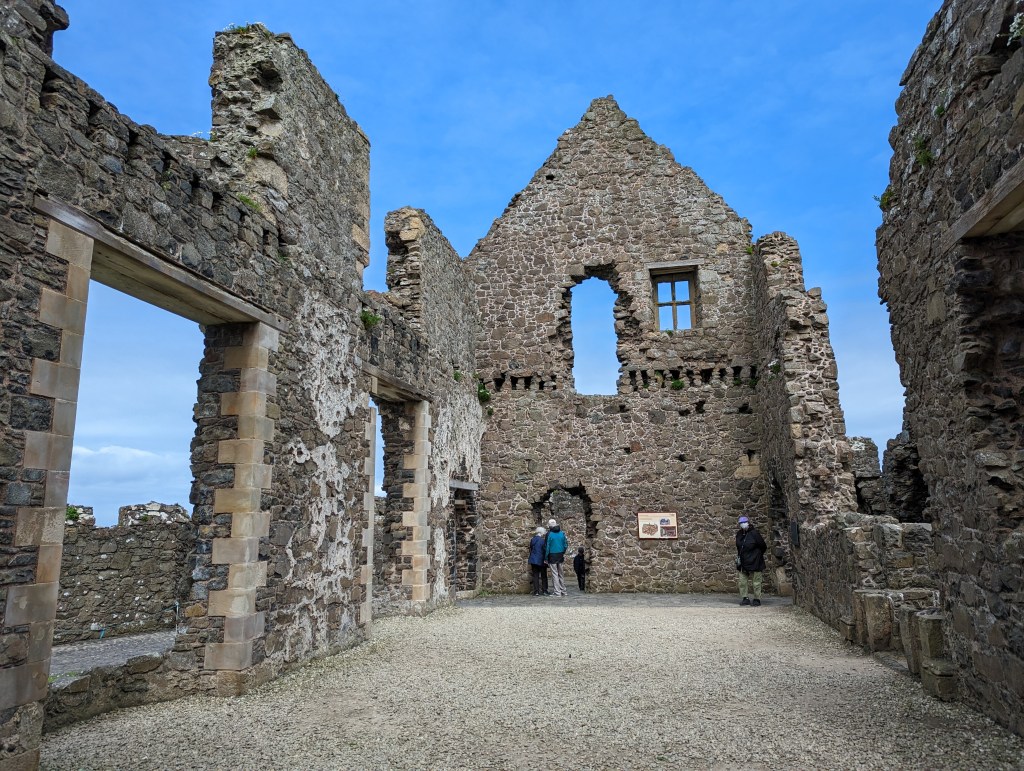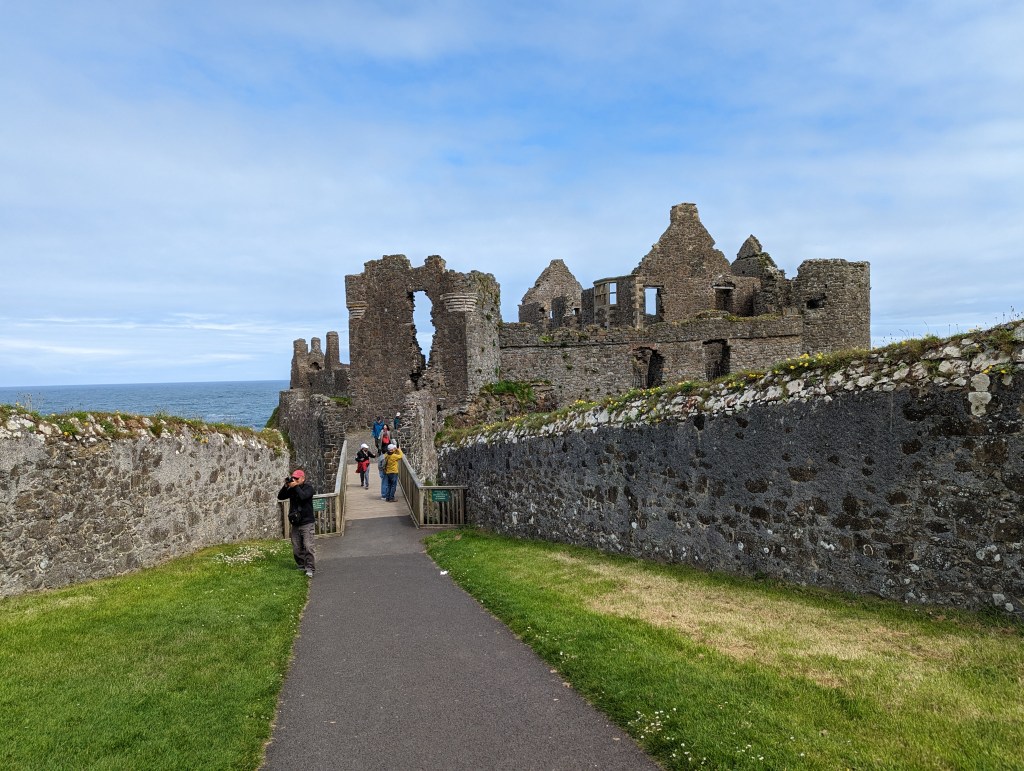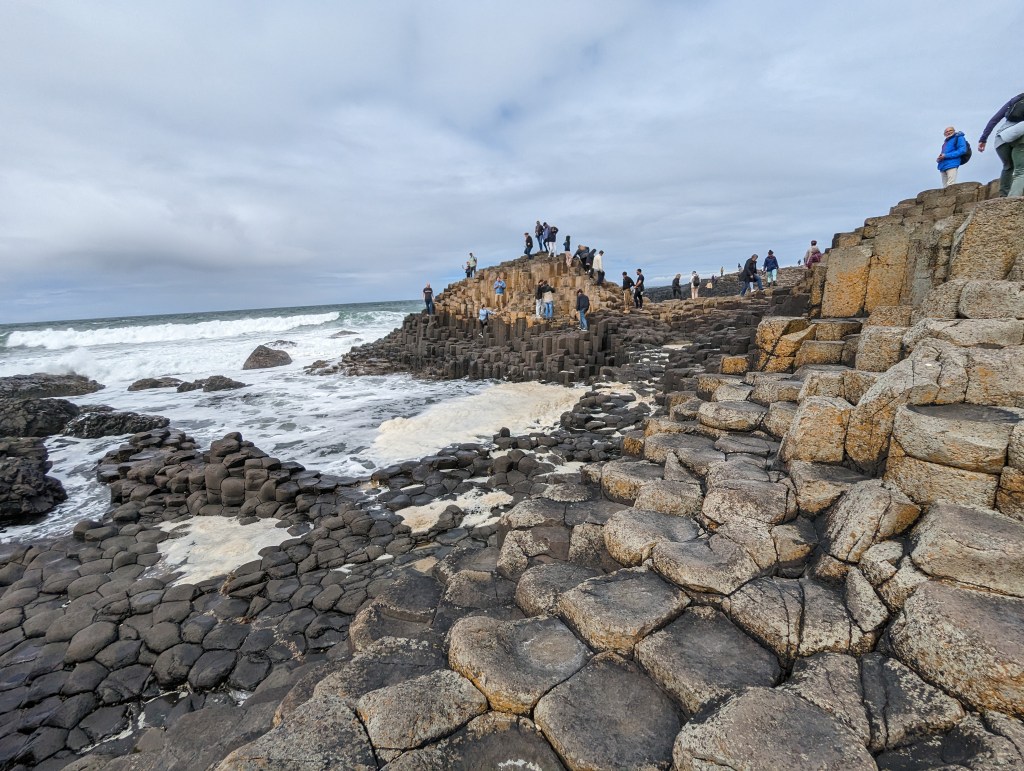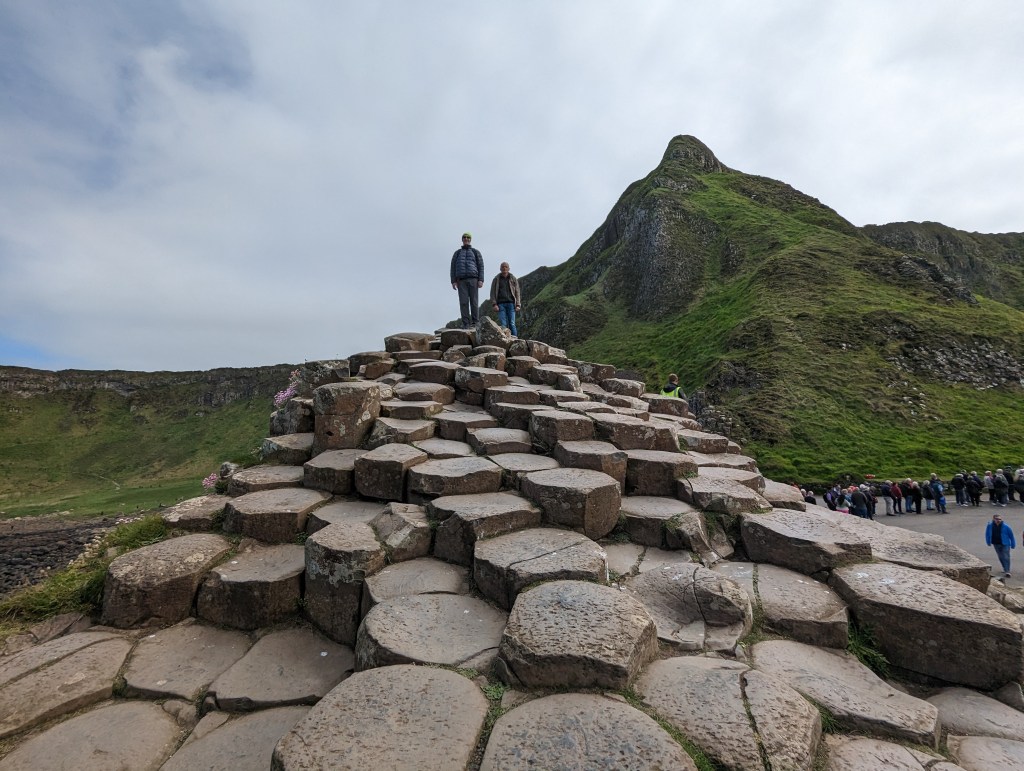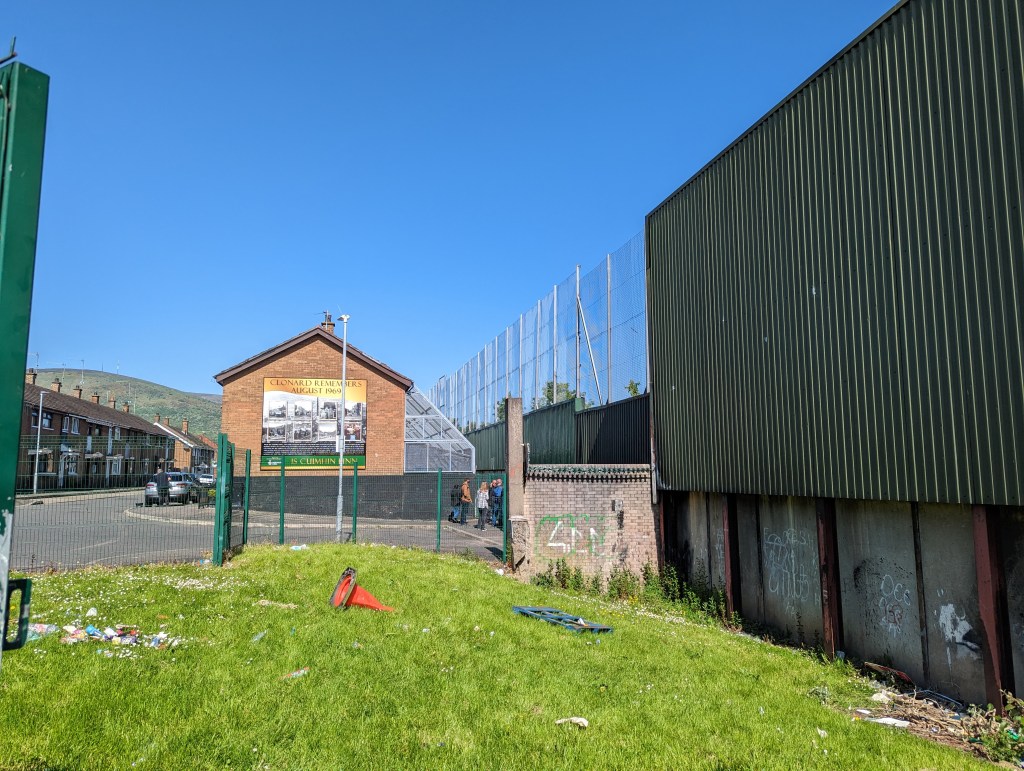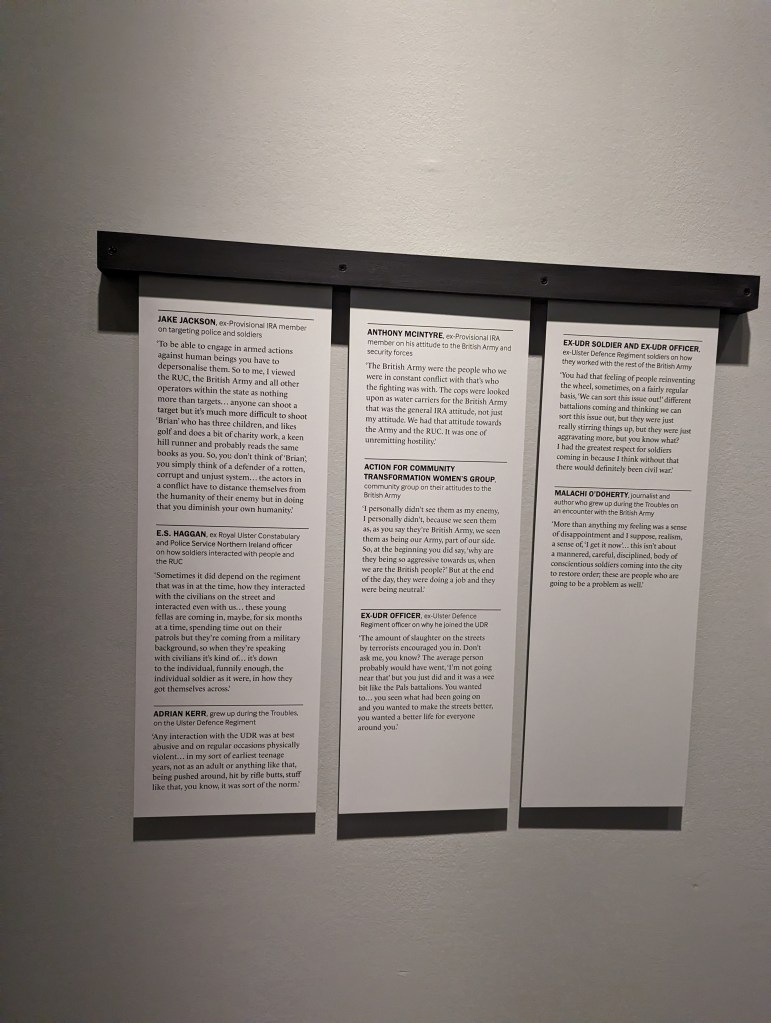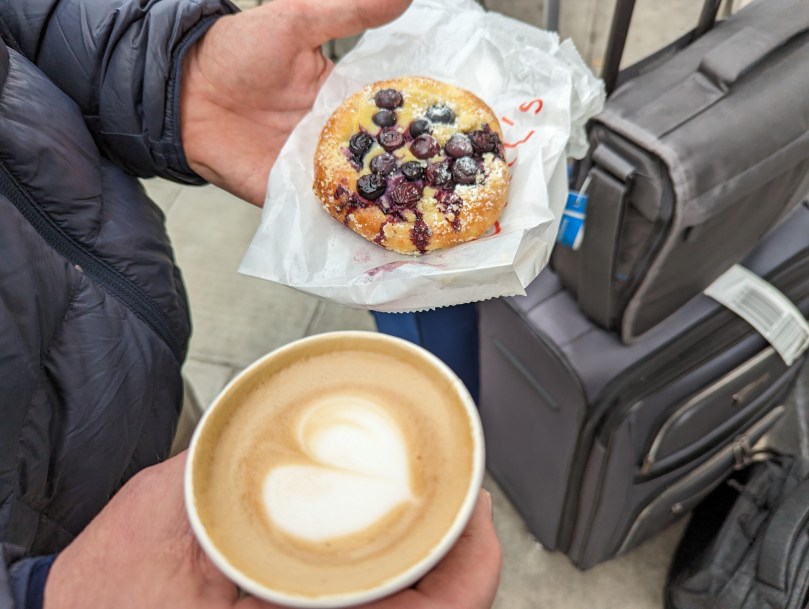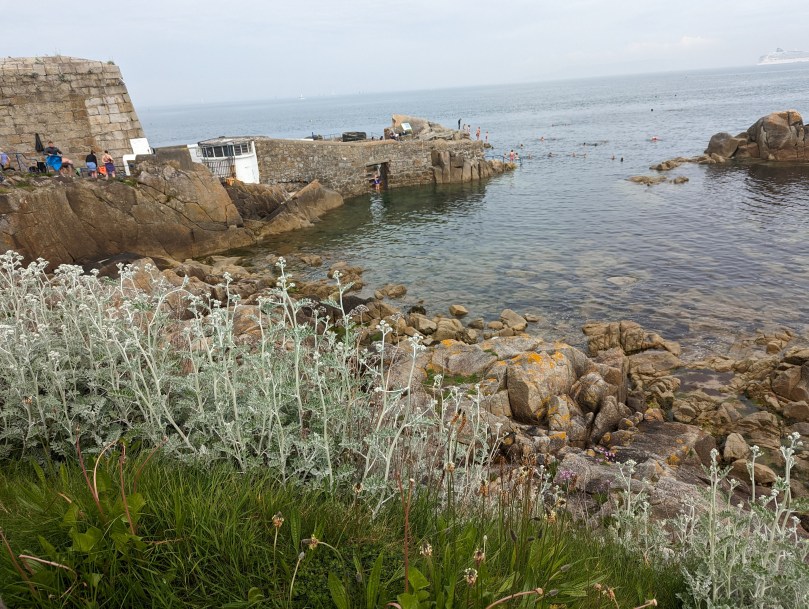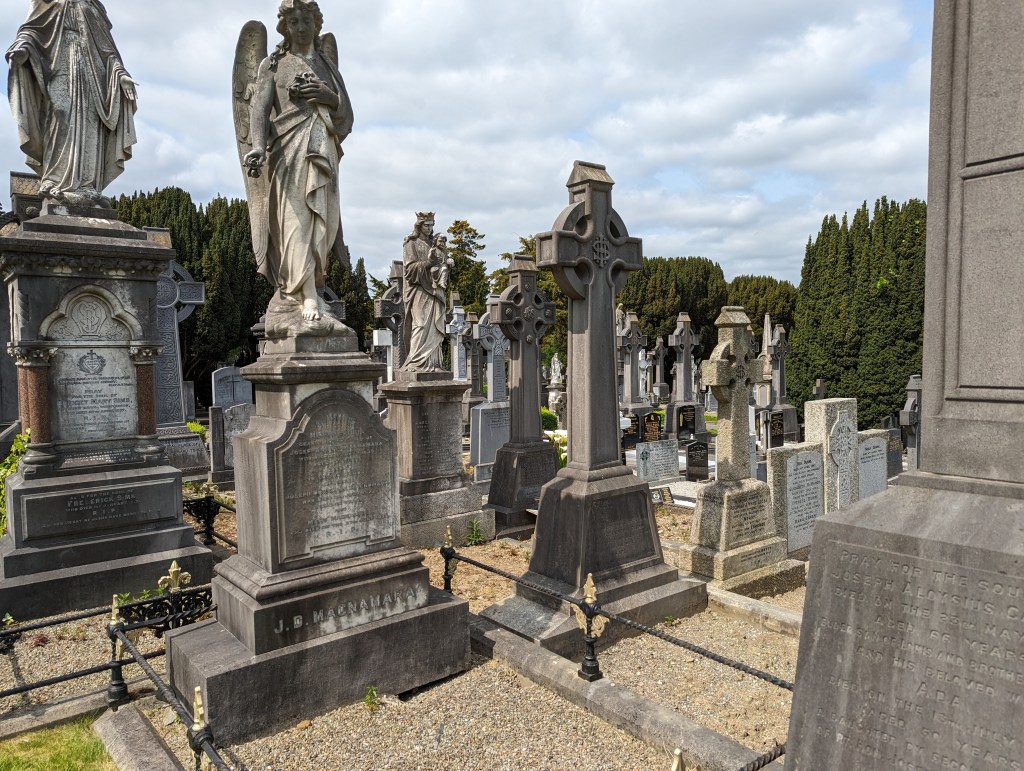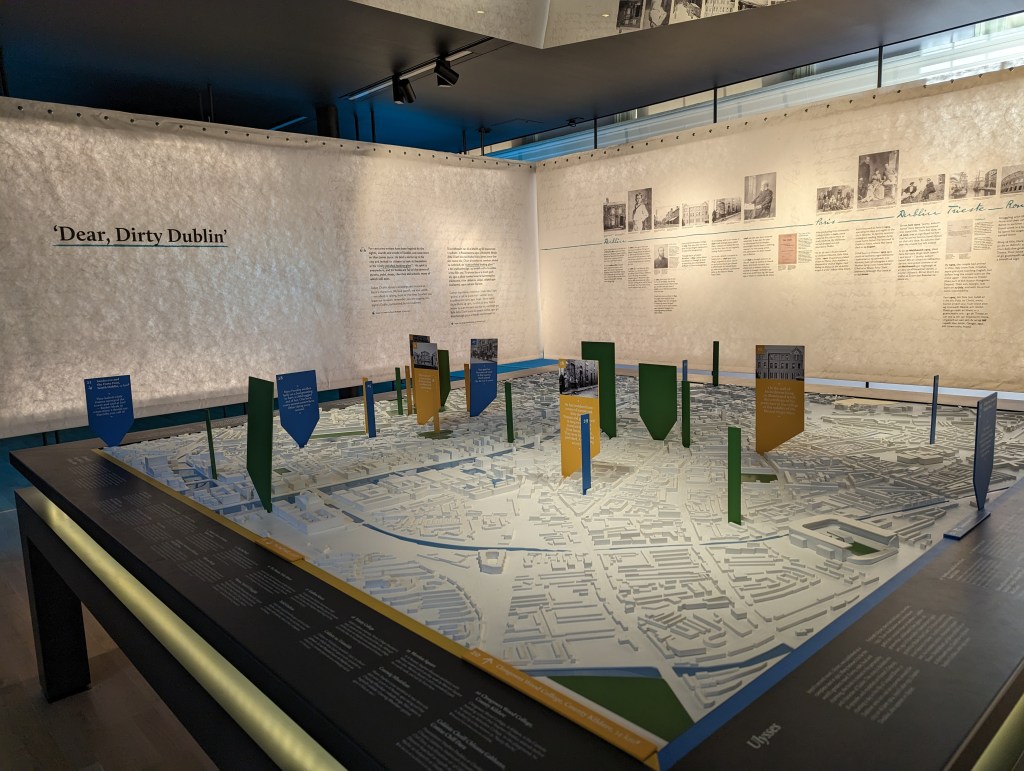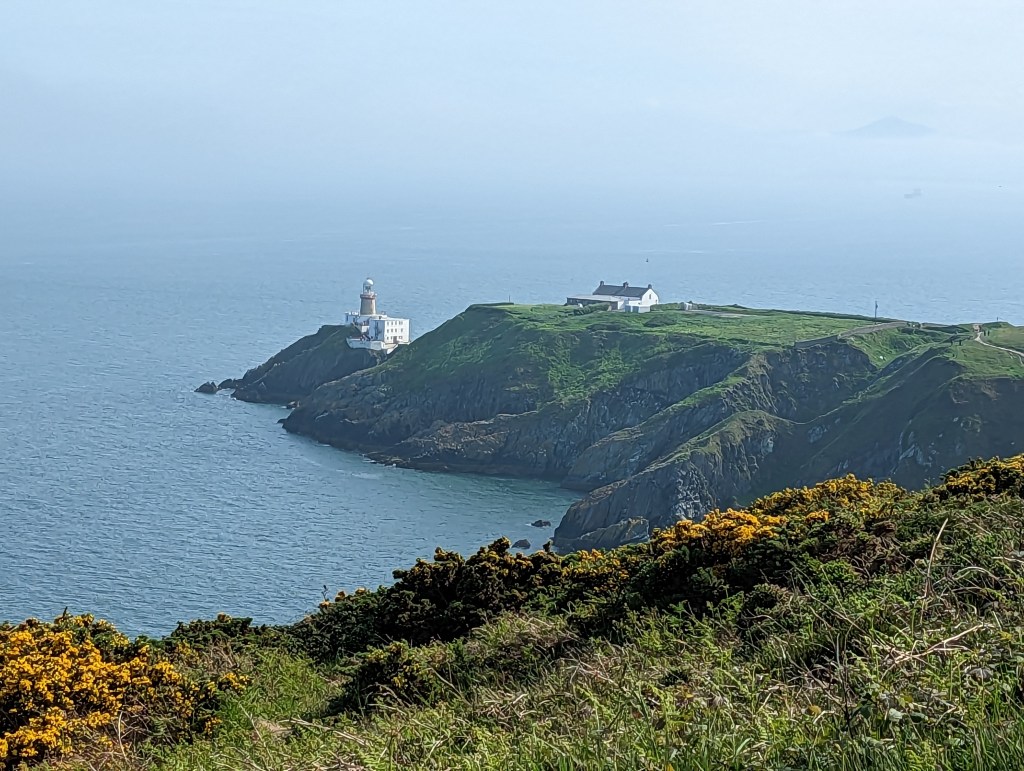Or, at least we still did by the end of the last match of the season, which took place Sunday under sunny skies. By the time I get off this plane, I would not be surprised to hear about his plans to move on. But I hope not.
The mood at The Emirates could have been anything after the way we capitulated the Premier League title. I didn’t expect it to be quite that cheerful. But extremely cheerful it was.
With regard to our time in London, after we visited the Troubles exhibit at the War Museum, we also visited the exhibit about video war games. Like all the exhibits, it was excellent. I am predisposed to think negatively of video games like many people of “my generation,” but there were plenty of things about the exhibit that gave me, lo these many years later, a grudging appreciation of what a video game provides a participant that cannot be replicated in a book or a movie. And though I do not love that war is replicated in video games, I have to agree with the exhibit: we have long simulated war in play.
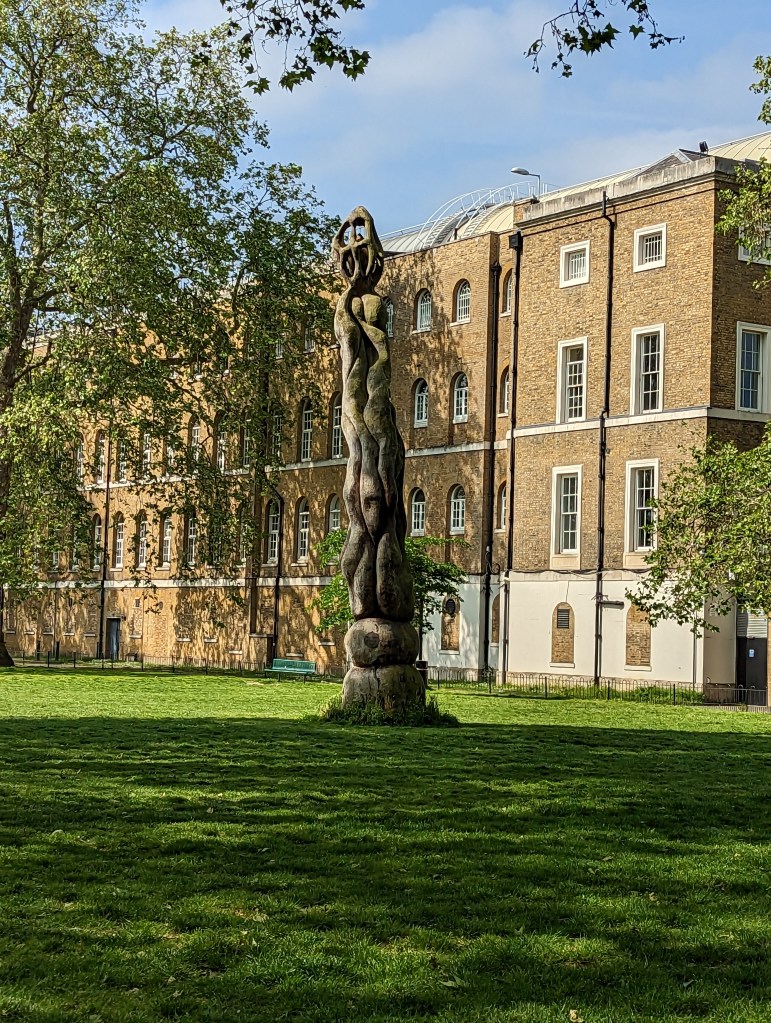



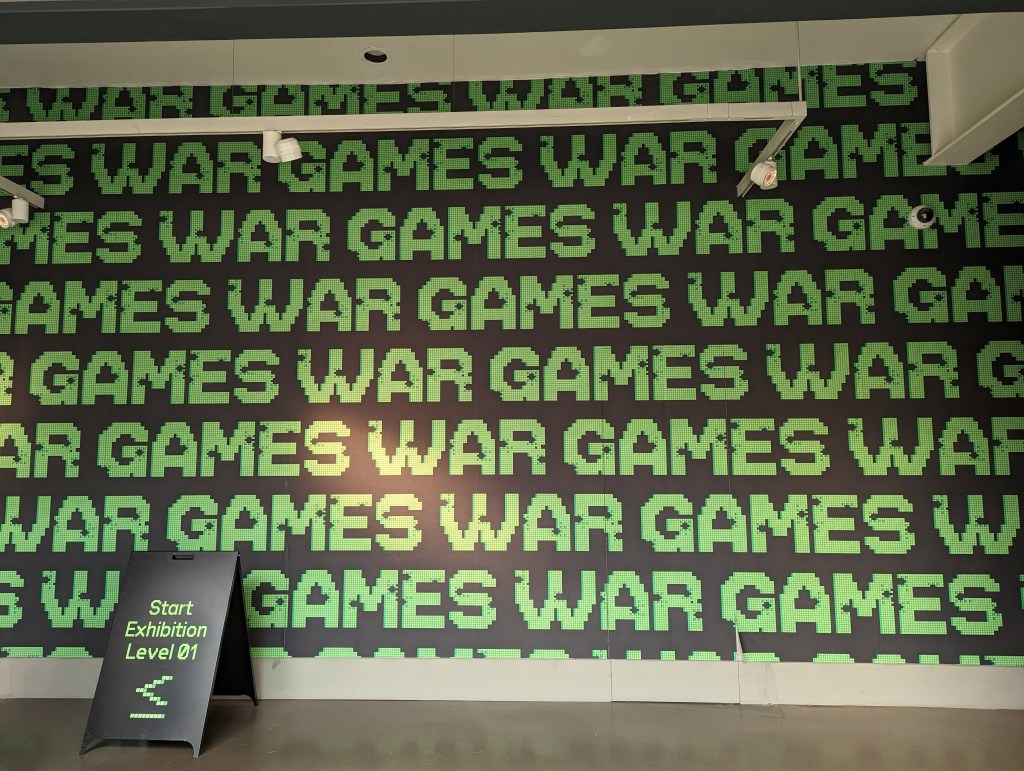
We also took a tour of the London Opera House. We have stopped in before when there were no tours, but it’s way more interesting to hear about the history of the Opera House with a very enthusiastic guide and see behind the scenes. While we were touring, a rehearsal was in session and it was cool to hear the performers working on the show. I especially enjoyed hearing about how the sets are created and controlled, and how they evolved over time to become particularly flexible and easy to shift to support a production. And made a note of how awesome it would be some sunny day to have a drink in the Opera café overlooking the Covent Garden market.
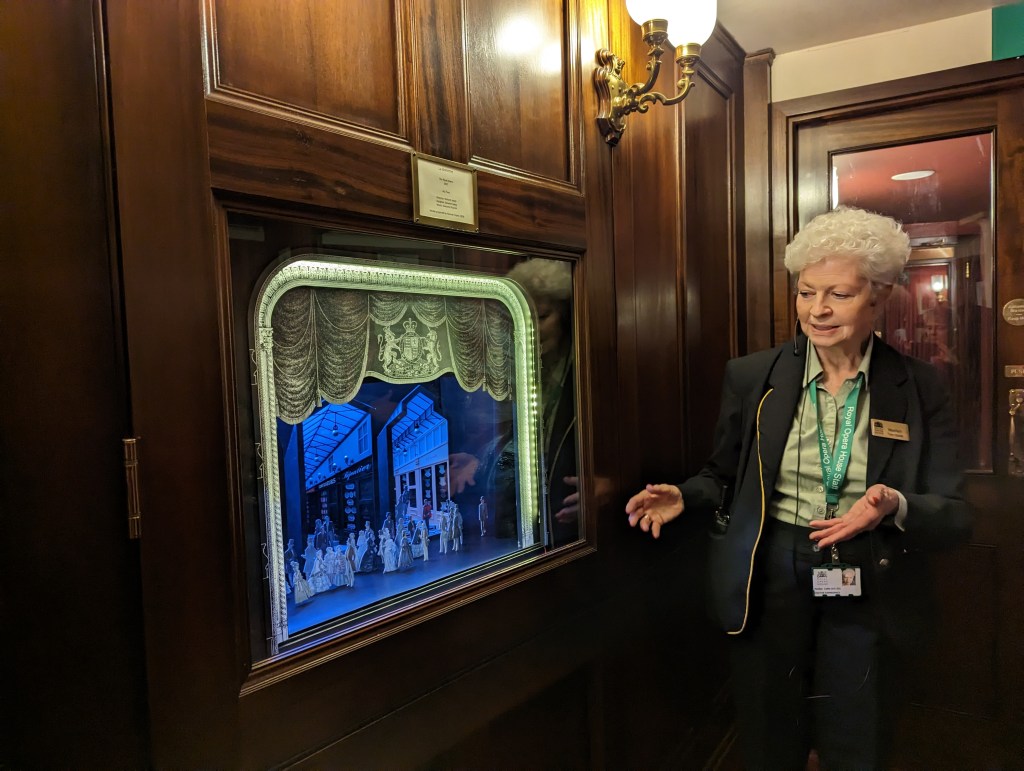
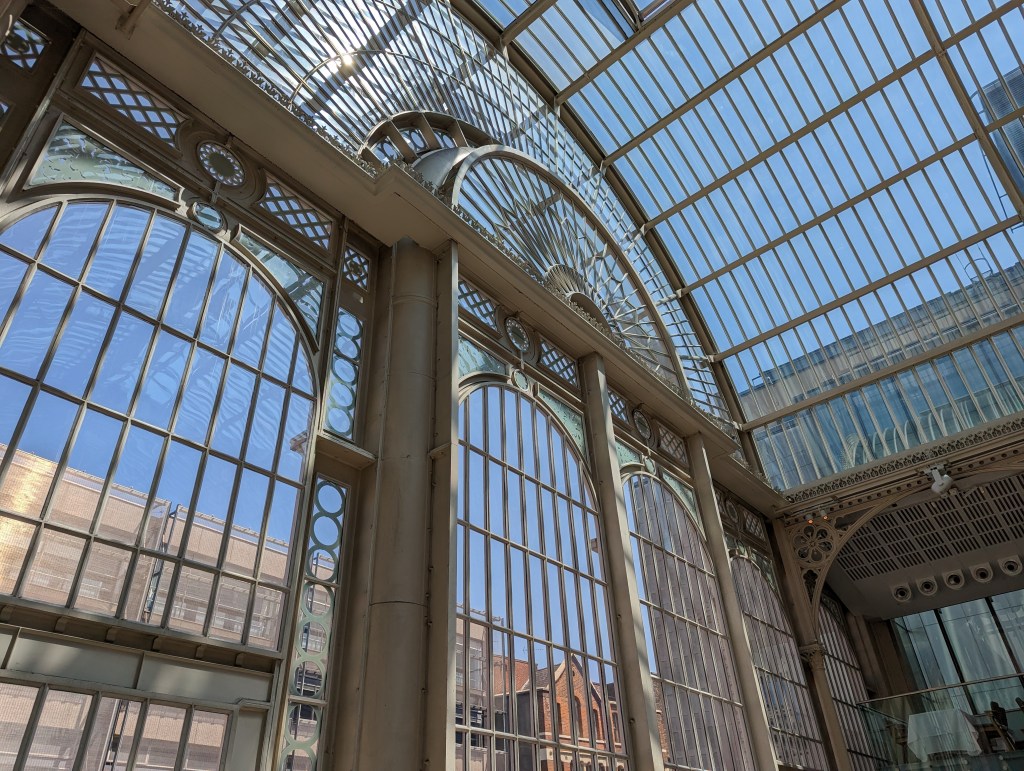
After that, we walked over to the Albert & Victoria Museum. I cannot in good conscience give any review. We were exhausted and unable to appreciate it. We decided to find the most significant 10 works, but quit well before that. Another time….
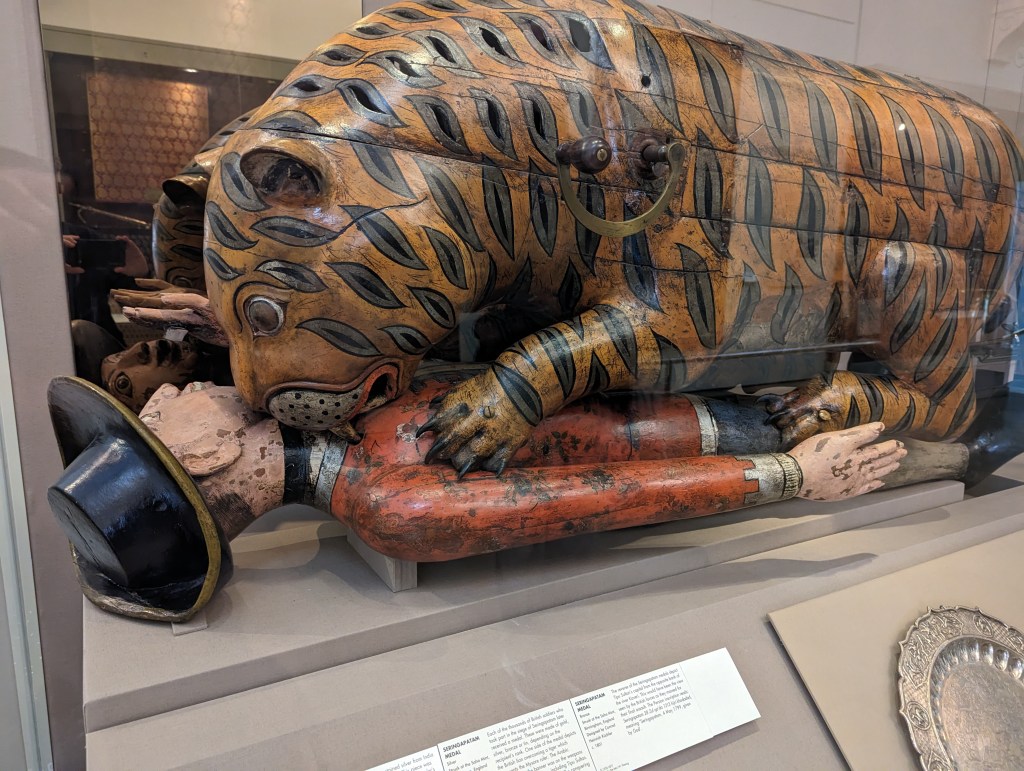
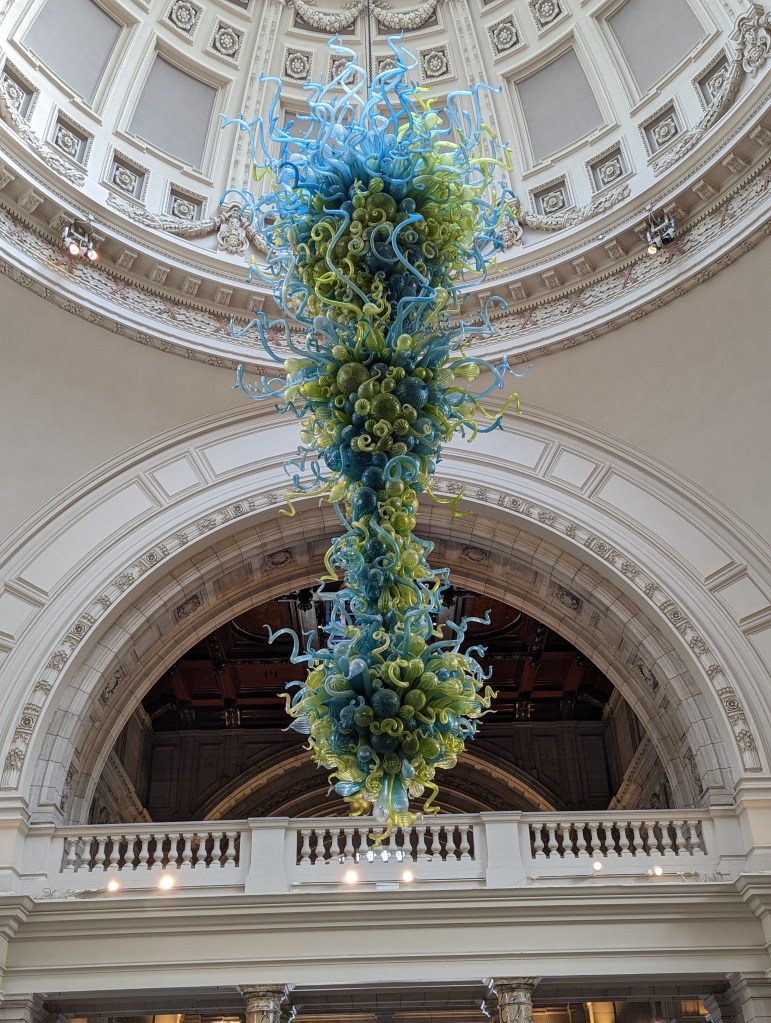
Sunday morning we got up and went to the Mattins service at St. Paul’s cathedral, across the street from our hotel, the Lost Property. It was something else to be in a service like that, in a building like that. The service was mostly choral music. The acoustics of the cathedral are not made for understanding the lyrics, but they are perfect for making you feel like you are experiencing something incredibly special.
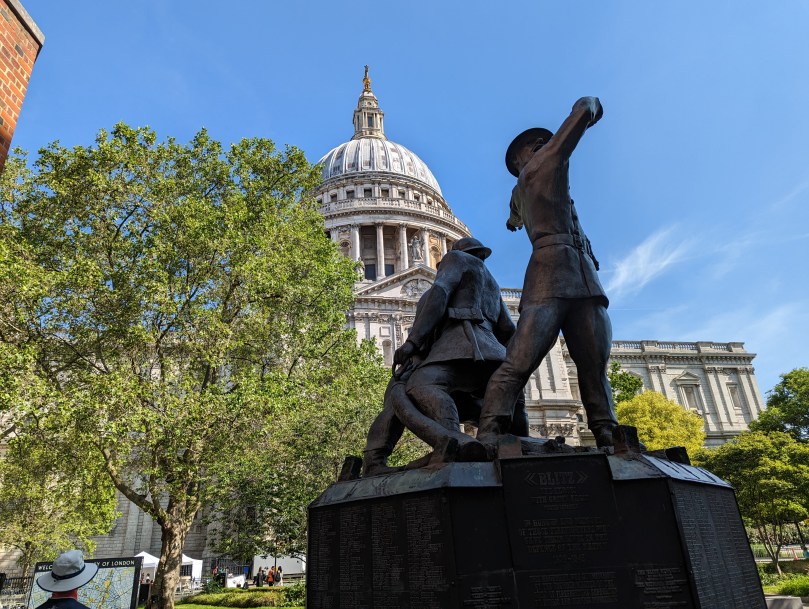
The match was later than usual, so we hit up the Princess of Shoreditch for Sunday roast at lunch time instead of dinner. Delicious as always. Then we walked to the match. Long walk.
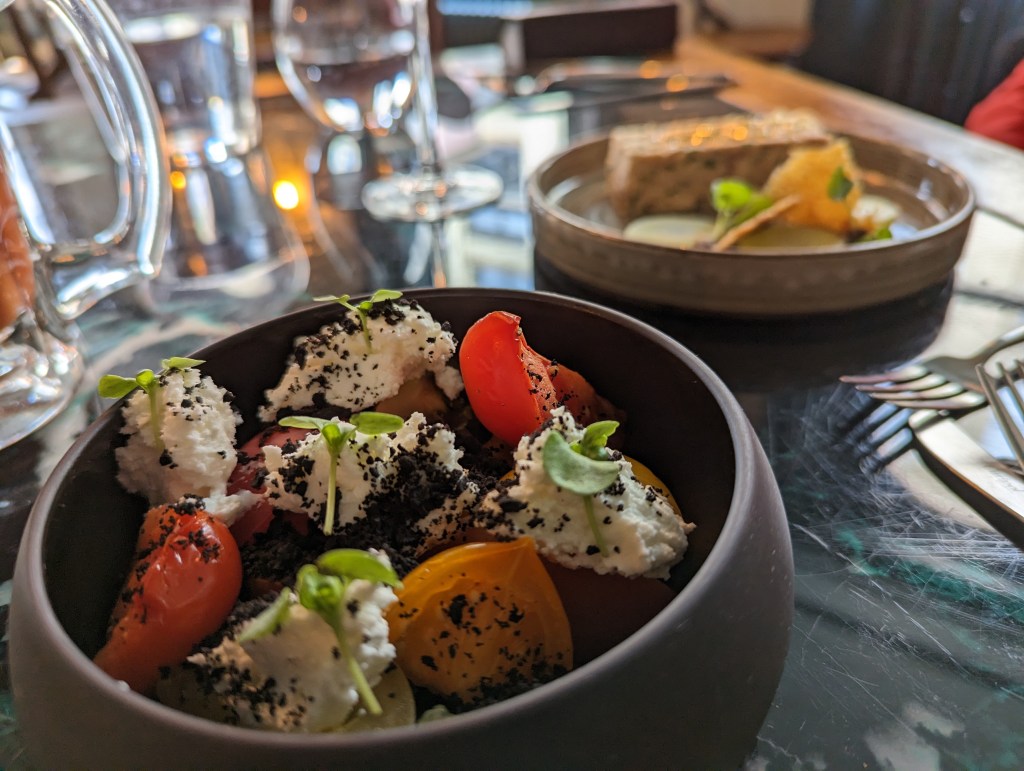
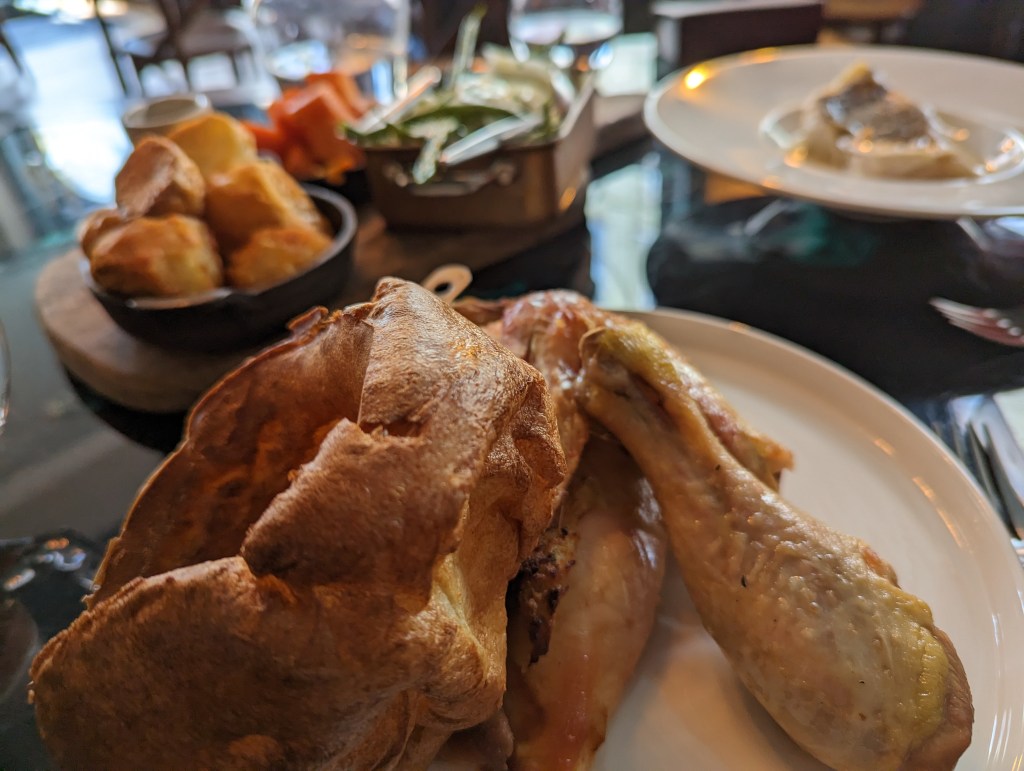

I’ve mentioned the Arsenal player Granit Xhaka in previous blogs. For many years after he arrived in 2016 he picked up a lot of red and yellow cards. I remember Arsene Wenger saying, as a means of explanation, he really doesn’t know how to tackle. When you are a top professional, not being able to perform an activity essential to your job is probably not a thing you want your manager to notice about you.
Still, he’s been a starter for the entire time he’s been with the team, usually playing the entire 90 minutes, and has been remarkably healthy for a Gunner. I can’t think of many times he’s been out for injury.
While he has always seemed to have enjoyed the trust of the Arsenal manager, across three of them no less, and has been a leader among the players, he has not been a fan favorite. There was just always a sense that we could do better. And frustrations with the cards and defensive mistakes.
All of this culminated in the situation I described in He’s sleeping on the couch now, where as captain of our team he was encouraged/booed off the pitch by fans and responded, let’s say, not well.
After that event, he was stripped of the captaincy by then-manager Unai Emery and was seemingly on his way out of the team. He said his bags were literally packed and ready to be shipped when our current manager, Mikel Arteta, convinced him not to leave.
His path to redemption has been nothing short of outrageous.
Because of his early propensity to get carded for fouls, fans now feel a sense of shared defensiveness when he gets a card. It’s started to feel like his reputation and not his actions have caused unfairness by referees. In fact, when someone on another team gets away with a minor foul, everyone–not just our fans–will ask, “Now, if that had been Granit Xhaka, would it have been a yellow card?”
Fans also started to get a grudging appreciation of his mastery of the dark arts, especially his ability to draw fouls just when we need them. He has this one patented move where he falls with the ball magically between his arms once he hits the deck. It is for sure going to be called a foul by the opponent or a handball by Xhaka. It gets called a foul by the referee every time. My husband says to to hapless, alleged fouler on the TV, “You’ve been Xhakaed.” And Xhaka is now able to get into an argument on the field with an opponent and take it all the way to the edge of the line, when in the past he might have come unhinged and well over the line.
Most importantly, Xhaka has become a critical part of how Arsenal play now. He is much more mobile and involved offensively. His passing is significantly improved and critical to the success of the team. He’s scored goals.
As a result, he’s become a serious fan favorite. Last year, after so many years in the team, he was endowed by the fans with his own song.
We’ve got (clap clap) Granit Xhaka
We’ve got (clap clap) Granit Xhaka
When interviewed, he’s been open about how much that means to him.
Everyone talks about how much he changed to be able to win support from the fans that he never had, but I would argue it’s equally true that the change is about the fans. We are able to take the occasional bad with the mostly good, and have appreciation for what our team, including Xhaka, delivers.
He stayed when it was hard, and we fans stayed when it was hard. We worked through our respective stuff and came out better–for ourselves and each other.
It’s clear: Not only have we got Granit Xhaka, we finally “get” Granit Xhaka.
Unfortunately, he’s out of contract soon and, rumor has it, wants to live elsewhere for family reasons. Or, alternate rumor, wants a longer contract than Arsenal are willing to give him at his age. Rumors aside, there are probably many reasons. In any case, it was believed that Sunday’s match was his last one in an Arsenal jersey.
He had a marvelous day Sunday. Not only did he score the first two goals, he was fervently sung throughout the match. He was taken out of the match with about 15 minutes remaining, and the cheering and singing of support was deafening. In contrast with St. Paul’s Cathedral it is easily possible to understand the lyrics sung in the Emirates. He even got a new song on Sunday when he was substituted. Well, new lyrics to a common tune.
We want you to stay
We want you to stay
Granit Xhaka
We want you to stay
Oh yeah, there were 3 other Arsenal goals. The match ended 5-0.
We end the season with remorse for what we failed to do, but with happiness for what we achieved and optimism for the future.
I’m already scheming about tickets next season.
They will be in short supply.

